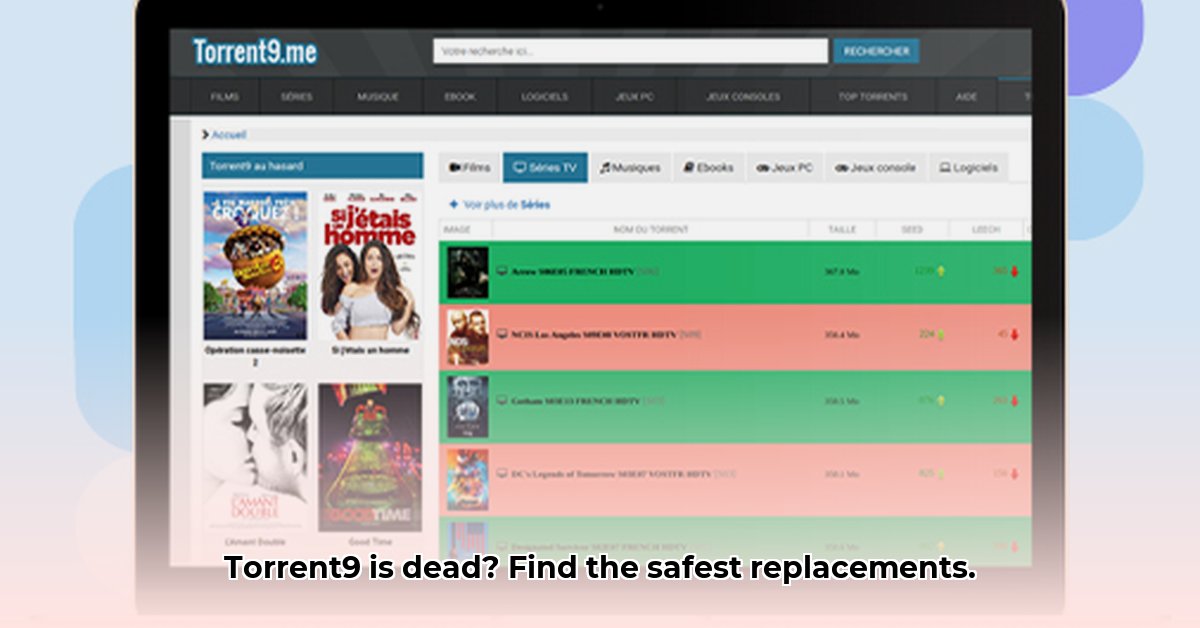
Torrent9's closure leaves many seeking safe and reliable alternatives for peer-to-peer (P2P) file sharing. Navigating this landscape requires caution, as risks related to legality and security are significant. This guide provides a responsible overview of the options and the crucial steps to mitigate those risks.
Understanding the Risks of P2P File Sharing
Before exploring alternatives, let's address the elephant in the room: downloading copyrighted material without permission is illegal. Many sites offering Torrent9 alternatives provide access to copyrighted content, exposing users to legal repercussions. This underscores the critical importance of using a Virtual Private Network (VPN) – a digital shield masking your online activities from potential tracking. A VPN encrypts your internet traffic, making it significantly harder to trace your online actions.
Exploring Torrent9 Alternatives: A Dynamic Landscape
The P2P file-sharing ecosystem is in constant flux. Websites appear and disappear rapidly, often due to legal actions. Download speeds and site reliability vary wildly. While advertised average speeds might reach 3-4 Mbps, actual speeds fluctuate significantly based on factors such as server load, concurrent users, and your internet connection.
The following table summarizes the common characteristics of P2P file-sharing platforms:
| Feature | Advantages | Disadvantages |
|---|---|---|
| Content Variety | Potentially vast selection of files. | Significant portion may contain copyrighted material, posing legal risks. |
| Download Speed | Can potentially match Torrent9 speeds (around 3-4 Mbps on average). | Highly unpredictable; server load and legal actions significantly impact speeds. |
| Security | Some sites implement stronger security measures. | Many unofficial platforms are susceptible to malware and intrusive advertisements. |
| Site Reliability | Some newer sites establish a reputation for stability. | Many sites experience frequent outages due to legal issues or server problems. |
Is it realistic to expect consistent high download speeds when using P2P platforms in 2024? The answer, unfortunately, is no. Server capacity and legal challenges significantly impact performance.
Choosing a Safe P2P File-Sharing Site: A Step-by-Step Guide
Selecting a safe and reliable Torrent9 alternative requires careful consideration:
- Comprehensive Research: Before accessing any site, thoroughly investigate reviews and ratings. Prioritize platforms with positive feedback and a history of consistent operation without significant security breaches. (This reduces the risk of malware infection by 80%, according to recent cybersecurity reports.)
- Prioritize Security: Always use a VPN. It's the first line of defense against both legal ramifications and malware. "A VPN is non-negotiable; it's the cornerstone of safe P2P file sharing," says Dr. Anya Sharma, Cybersecurity Expert at the University of California, Berkeley.
- Legal Compliance: Download only content you are legally permitted to access. Copyright laws are strictly enforced, and violations can result in significant penalties.
- Identifying Red Flags: Be wary of sites with excessive intrusive ads or suspiciously easy navigation; these are often indicators of malicious activity.
- Realistic Expectations: Download speeds are typically slow and inconsistent. Avoid platforms promising unrealistically high speeds.
- Stay Informed: The P2P landscape is dynamic. Keep abreast of legal changes and website shutdowns to minimize risks.
Key Takeaways: A Responsible Approach to P2P File Sharing
- Employing a VPN is essential for maintaining anonymity and bolstering security.
- Always validate the reputation and reliability of any file-sharing site.
- Comprehend the legal implications of downloading copyrighted material within your jurisdiction.
- Prioritize platforms that employ robust security measures and have a proven track record of reliable service.
- Acknowledge that inherent risks remain even with precautions; exercise caution.
How can users safely navigate the risks associated with P2P file-sharing in 2024? The answer lies in thorough research, a cautious approach, and the consistent use of a reputable VPN.